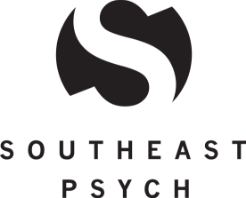Starting therapy is a significant step that can seem daunting. Lauren’s approach is to partner with her clients, listen, understand their individual situations, and provide them with the empathy and expertise they need to successfully learn skills to cope. The journey alongside her clients is a process built on trust. Lauren highly values her relationships and understands the absolute importance of professionalism, confidentiality, and privacy in a non-judgmental and safe space. She allows her clients the ability to speak freely and express themselves candidly, which helps result in the best possible outcome.
Life can hold an enormous amount of pressure. It is stressful. By employing a warm and evidence-based approach, Lauren helps clients process emotions, reframe thoughts, and navigate the complexities of life. She values her clients’ individual perspectives, encourages collaboration, and adapts sessions to meet each client’s unique needs while emphasizing personal strengths and goals. She wants to improve the quality of life of her clients and aims to help them perform at their best. Lauren has experience working with clients of many ages ranging from childhood to older adulthood and particularly enjoys working with adolescents and young adults.
In her free time, Lauren loves going for long walks with her dog, Winnie, spending time with friends and family, baking, and listening to podcasts.
Therapeutic Approaches:
- Cognitive behavioral therapy (CBT)
- Dialectical behavioral therapy (DBT)
- Behavioral therapy
- Positive psychology
- Person-centered therapy
Education and Training:
- M.S. in Clinical Rehabilitation and Mental Health Counseling from the University of North Carolina at Chapel Hill
- B.A. in Psychology from Auburn University
- Clinical Internship at Southeast Psych co-leading social skills groups for children with autism spectrum disorder
- 5 years of extensive experience providing individual and family therapy to children, adolescents, and adults with psychiatric and developmental disorders in outpatient settings
Areas of Expertise:
- Anxiety disorders
- Mood disorders including depression and bipolar disorder
- Post-traumatic stress disorder/trauma
- Relationship conflict
- Stress management
- Life transitions
- Disordered eating/body image concerns
- Obsessive-compulsive disorder (OCD)
- Self-esteem and self-exploration

